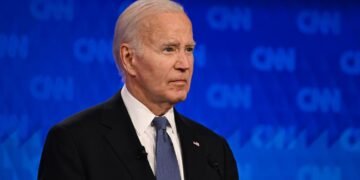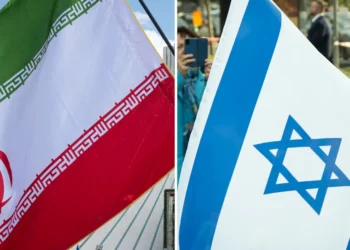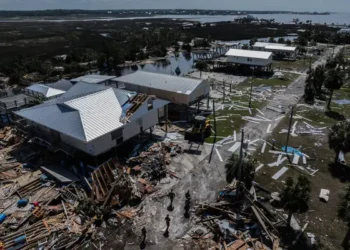In a stunning upset, far-right libertarian Javier Milei has been elected president of Argentina in a run-off election against centrist finance minister Sergio Massa. The election comes at a time of deep economic crisis for Argentina, with soaring inflation and widespread poverty. Milei’s promises of radical change resonated with voters who are desperate for a solution to the country’s problems.
Milei, a former economist and TV personality, is a controversial figure who has been criticized for his extremist views. He has called for the abolition of the central bank, the privatization of state-owned enterprises, and the elimination of most taxes. He is also a climate change skeptic and has made derogatory remarks about women and minorities.
Despite his controversial views, Milei tapped into a deep vein of frustration among Argentines who are tired of the status quo. He campaigned on a platform of economic freedom and individual liberty, promising to “make Argentina great again.” His brash and outspoken style resonated with many voters who saw him as a refreshing alternative to the traditional political establishment.
Massa, the Peronist candidate, had been seen as the frontrunner in the race. He is a more experienced politician than Milei and had promised to continue the policies of the outgoing president, Alberto Fernández. However, Massa’s campaign was hampered by the country’s economic woes, and he was unable to generate the same level of enthusiasm as Milei.
In the end, Milei’s victory was a surprise to many. He had not been expected to win the first round of the election, but he surged in the polls in the weeks leading up to the run-off. His victory is a sign of the deep divisions in Argentinian society and the growing frustration with the country’s political system.
Milei’s presidency is likely to be a tumultuous one. His radical policies are sure to face opposition from the Peronists and other left-wing parties. He is also likely to face international criticism for his views on climate change and other issues.
Only time will tell whether Milei will be able to deliver on his promises and solve Argentina’s deep-rooted problems. However, his election is a clear sign that the country is yearning for change.
Here are some of the key implications of Milei’s victory
- A shift to the right in Argentinian politics. Milei’s victory is a significant shift to the right for Argentinian politics. The country has traditionally been dominated by the Peronist Party, a center-left party. However, in recent years, there has been a growing movement towards the right, and Milei’s victory is a reflection of this trend.
- A period of uncertainty and instability. Milei’s radical policies are likely to face opposition from the Peronists and other left-wing parties. This could lead to a period of political instability, as the two sides clash over the direction of the country.
- A potential for increased social unrest. Milei’s divisive rhetoric and policies could lead to increased social unrest in Argentina. The country already has a high level of poverty and inequality, and Milei’s policies could exacerbate these problems.
- A change in Argentina’s relationship with the world. Milei has been critical of Argentina’s relationship with the United States and other Western powers. He has also said that he would like to withdraw Argentina from the Mercosur trade bloc. These changes could have a significant impact on Argentina’s foreign policy.
It is too early to say what the long-term impact of Milei’s victory will be. However, it is clear that his election will have a profound impact on Argentina’s future.














































